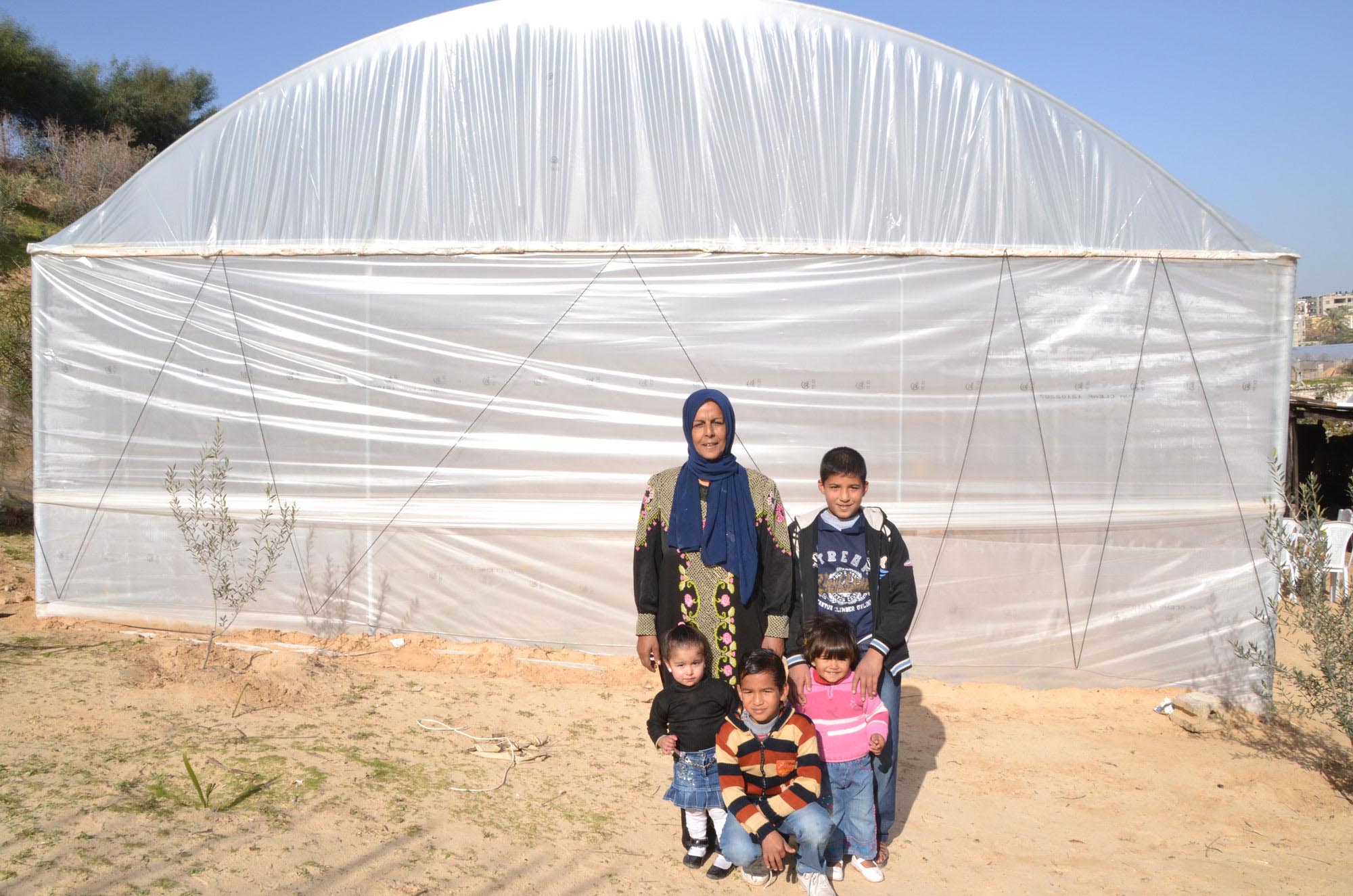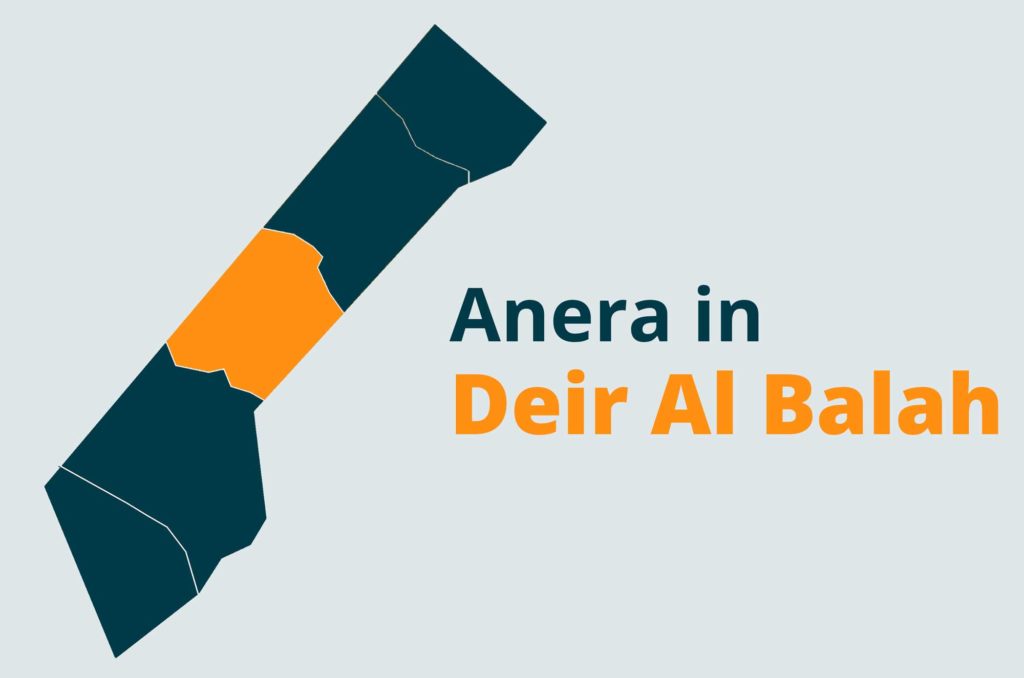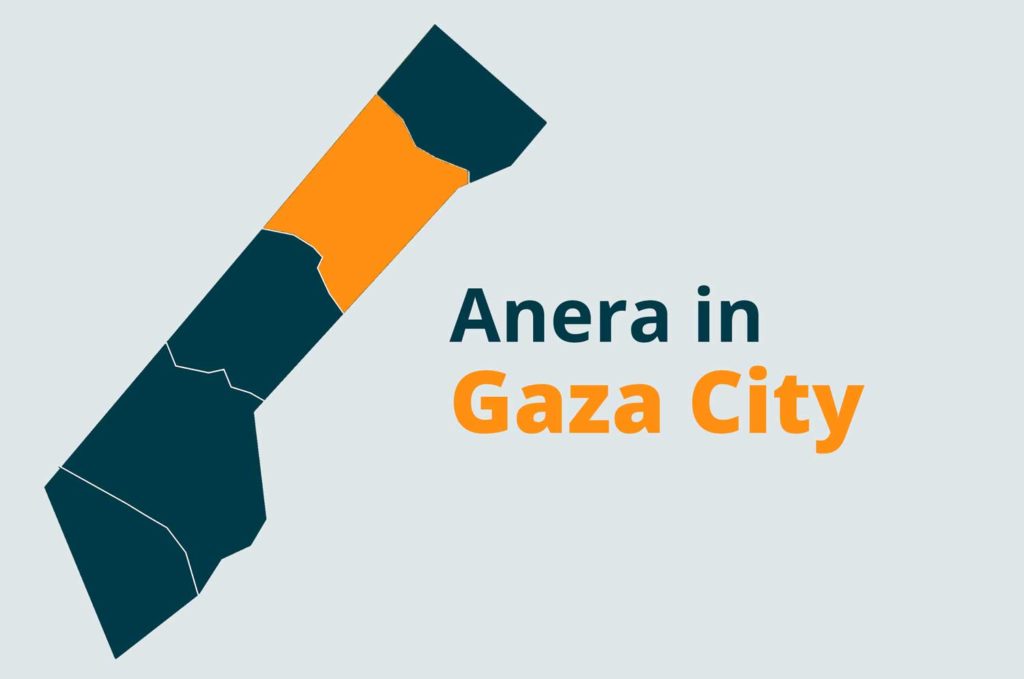Apr, 2013
Gaza farmers are still recovering from the November bombings and air strikes that destroyed fields and demolished many greenhouses and other farm structures.
Coupled with hardships caused by the blockade and a weak economy, Gazans struggle to afford fresh nutritious food for their families. A recent UN study says four out of ten Gazans are food insecure. Eight out of ten families must depend on food aid to survive.
In Khan-Younis, the Ghalban family is managing to meet those challenges, thanks to their new home garden that Anera has provided them. Sisters Fola and Abeer El-Ghalban love watching their grandfather work in the new greenhouse. “We don’t bother him but do help pick the lettuce,” says five-year-old Fola. Lettuce, she says, is her favorite vegetable because of all the leaves. She laughs and admits she eats some leaves while she and her sister harvest the lettuce.
Grandfather Bassel doesn’t mind. He also has planted onions, tomatoes, cabbage and sweet pepper, “The project fills some of our needs,” he says. “And, when I eat from my garden that I planted, I am sure the food is free of chemicals.” Bassel sees the greenhouse as a beneficial fresh food resource. He hopes to expand his plantings. “I would sell vegetable seedlings and encourage others to plant and produce vegetables.”
The home gardens project gives Gaza families the means to put healthy food on the dinner table and also earn some extra income. Anera selects families, based on family size with children under the age of five, farming skills, marginalization and income. Special attention is given to households headed by women. Each family gets a greenhouse, tools, seedlings, water tank and compost. They also receive training in best farming practices. for planting, composting, fertilizing, greenhouse management and making best use of water.
Bassel joined 50 other farmers for 36 hours of training that Anera offered on agricultural best practices, including sustainable practices like crop rotation, composting, and non-chemical pest control strategies. “It is great to feel sense of self- sufficiency,” said Bassel.
Mohammad El-Astal is proud of his organic garden that he planted after training from the Anera agronomist. He says he can feed his family from the cabbage, tomatoes, pepper, eggplants and lettuce he planted. “The economic situation is very bad and we are unable to buy all the vegetables we need for cooking,” he said. “I am proud to know now that I can feed my family.”
Another participant, Zaree’ El-Astal says he thought about setting up a home garden on his own but it was too expensive. “I received a greenhouse from Anera, along with seedlings, compost, irrigation system and a water tank. That would have cost me around $1,100, which I don’t have.”
Zaree’ decided to plant 10 types of vegetables with a big area devoted to tomatoes, “I am planning to sell the extra to earn an income,” said the father of five children. “I believe that if we have an inner impetus to succeed, we will. This is the way I live,” he added with obvious pride. “So I am sure if a poor family in my area would be granted the same opportunity I have, they will succeed too.”




